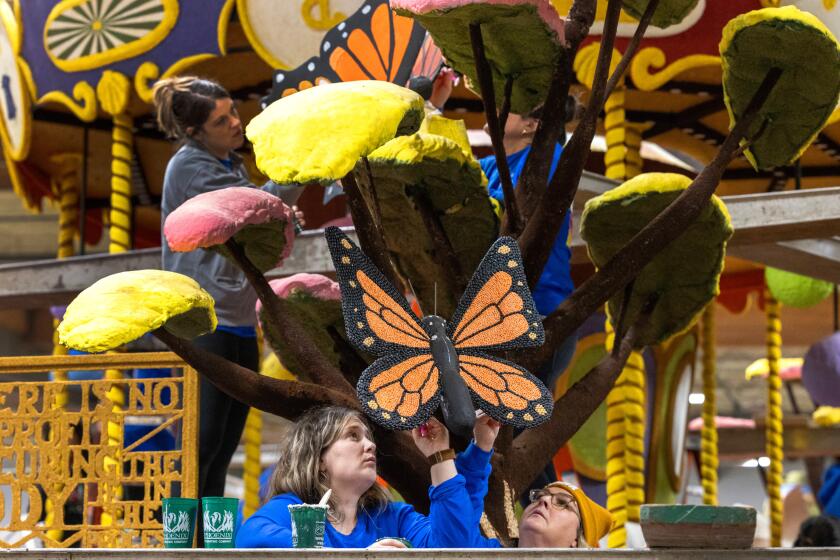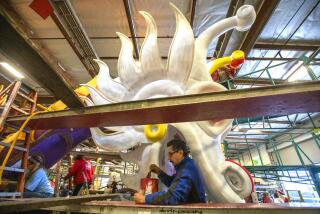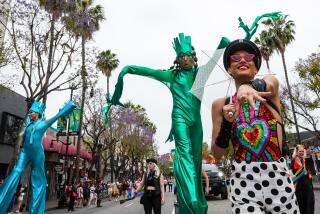‘We are not that’: How one Florida county is defying DeSantis at the 2024 Rose Parade
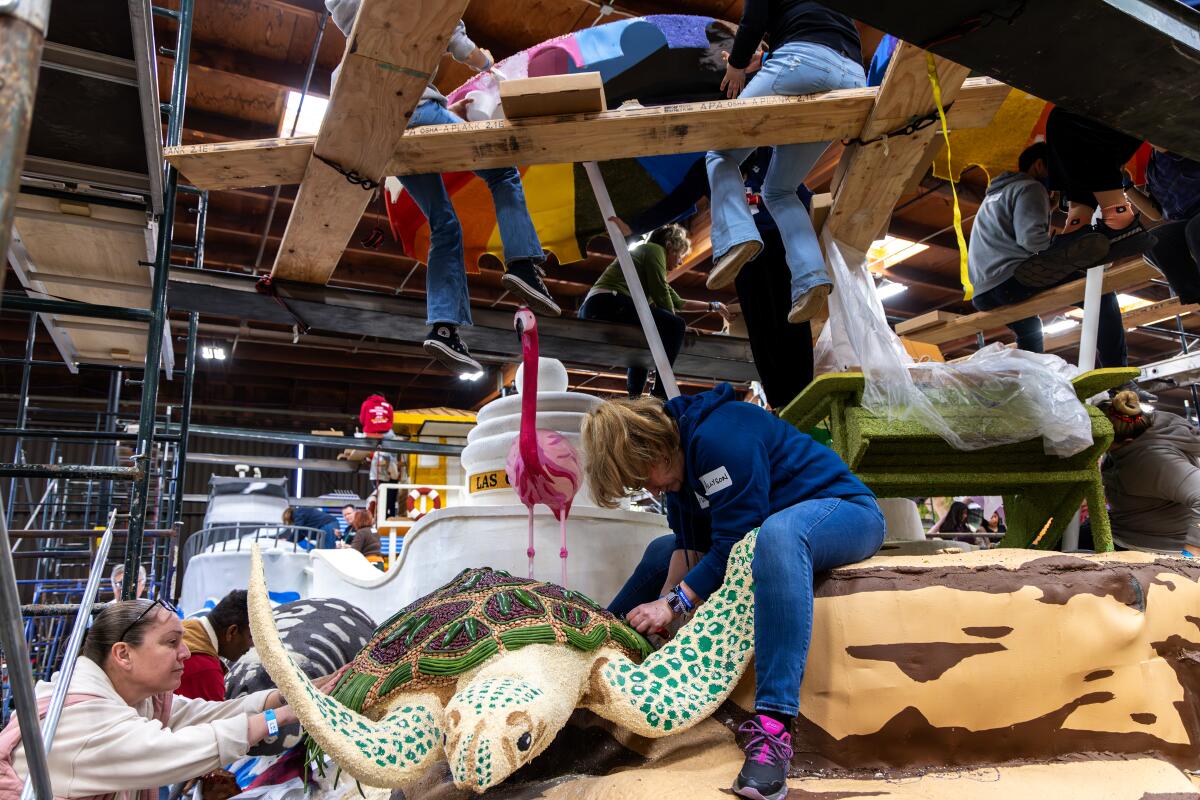
Stacy Ritter knew she had to do something big to distinguish Fort Lauderdale from Ron DeSantis.
The Florida governor had spent more than a year attacking LGBTQ+ rights, and the Broward County seat was suffering. In 2023 alone, 18 conferences pulled bookings from the county, repelled by the state’s “Don’t Say Gay” bill and DeSantis’ forays against queer and trans people and reproductive rights, among other targets.
So Ritter came to California and enlisted 45,000 flowers; a raft of Brussels sprouts; the nephew of the late Harvey Milk, one of the country’s first openly gay elected officials; and what amounts to a two-hour televised ad — also known as the 135th annual Rose Parade — that is viewed by millions.
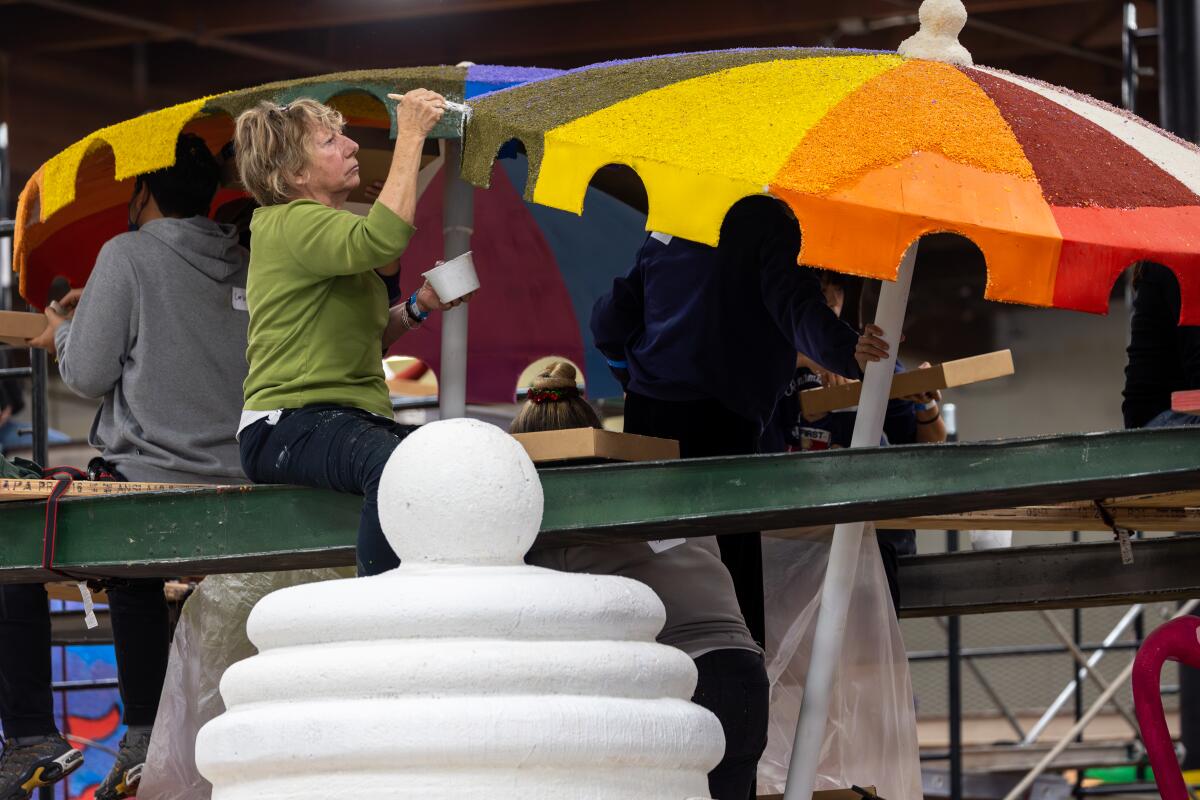
Thanks to Ritter, president and chief executive of Visit Lauderdale, her county now has its first Rose Parade float, complete with rainbow umbrellas and a slogan she hopes will counteract DeSantis’ march to the right: “Everyone under the sun.”
“We’re hoping that the way we have designed the float will show how diverse and inclusive this destination is,” Ritter said of Fort Lauderale. “It’s a place that might be different from your perception of Florida and what the headlines say Florida is. We are not that.”
Not everyone thinks it’ll move the needle. Academics such as Karen Tongson, chair of gender and sexuality studies at USC, say action without meaningful transformation and resistance will not advance progress. While Ritter understands such perspectives, she notes that local businesses can and will take economic hits when people stay away.
“Tourism is our No. 1 industry here,” Ritter said. “If visitors don’t come here, people can’t pay their bills.”
Volunteers help decorate the 2024 Rose Parade floats to prepare them for their New Year’s Day debut.
DeSantis’ office did not respond to requests for comment.
In November, DeSantis boasted that Florida continued “to beat overall annual visitation records with 105.2 million visitors so far in 2023.”
Ritter, a longtime admirer of the Tournament of Roses, was inspired to participate after watching other destination floats at the 2023 Rose Parade. The Visit Lauderdale team has spent about $790,000, including registration and materials for the float, to bring its creation to life.
It is an effort the Broward County community wholeheartedly supports.
“We needed to make sure that we separated ourselves from what was being said about us,” Ritter said, “and what is being done to us.”
Featuring a yacht, a lifeguard tower topped with a pride flag and depictions of wildlife, the float incorporates nods to the county’s beachy tourist attractions. It’s topped by a replica of the Guitar Hotel at Seminole Hard Rock Hotel & Casino in Hollywood, Fla.
Moreover, Ritter said, the float will feature community leaders such as Miss Florida Seminole Thomlynn Billie, who described Visit Lauderdale’s message as “powerful.”
“I hope that 2024 is the era of inclusivity and togetherness,” Billie, who is from the Seminole Tribe’s Panther Clan, wrote in an email. “And that people can live together peacefully without the threat of harmful actions and words that may be used against them because of their backgrounds, skin color and/or culture and religion.”
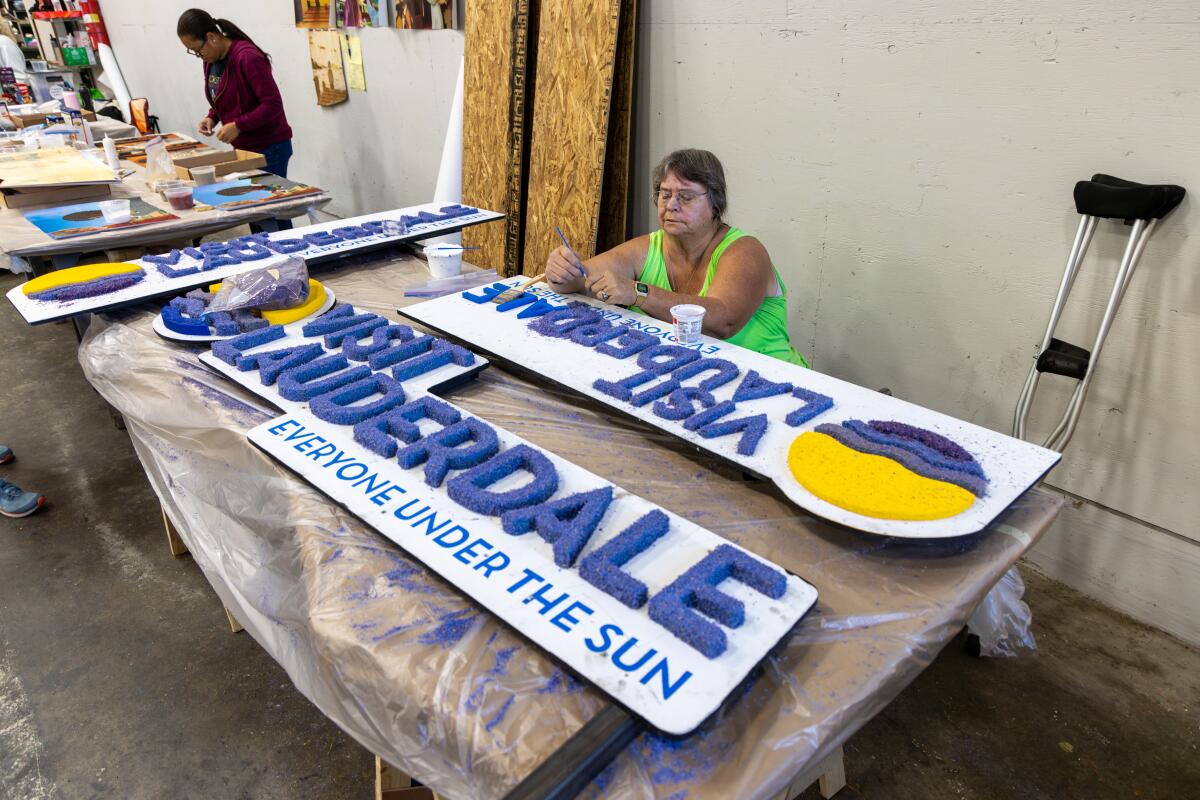
Billie, 23, added, “I know that when I see Native people making themselves known to the world, and people show interest in their talents and culture, it brings a smile to my face and that I live in a time where we can proudly show our Indigenous culture that our ancestors fought so fiercely for.”
Stuart Milk will also be one of six people riding the float on New Year’s Day. A Broward County resident of 25 years, the executive chair and co-founder of the Harvey Milk Foundation said the float is a “message of inclusiveness” amid DeSantis’ “message of hate.”
“South Florida is really one of those beacons of light for giving Harvey Milk-style hope to not only the people here in Florida, but the people who visit,” he said.
Given the Rose Parade’s national reach, the Visit Lauderdale float will send a message across the country that it’s “OK to be who you are and celebrate who you are,” said Anthony Ocampo, a professor of sociology at California State Polytechnic University, Pomona. But it’s also one step in the right direction. “It’s a symbol of support, and as much as symbols of support are important, it’s also necessary to have policies of support, because policies are what affect people en masse,” he added.
Ocampo, who visited Ft. Lauderdale this year and felt welcomed, expressed hope that upon seeing “the positive reception of the Visit Lauderdale float,” Florida communities will feel “emboldened to be more outspoken and supportive” of queer and trans people.
“It’s a time when they really need to hear that support spoken out loud,” Ocampo said.
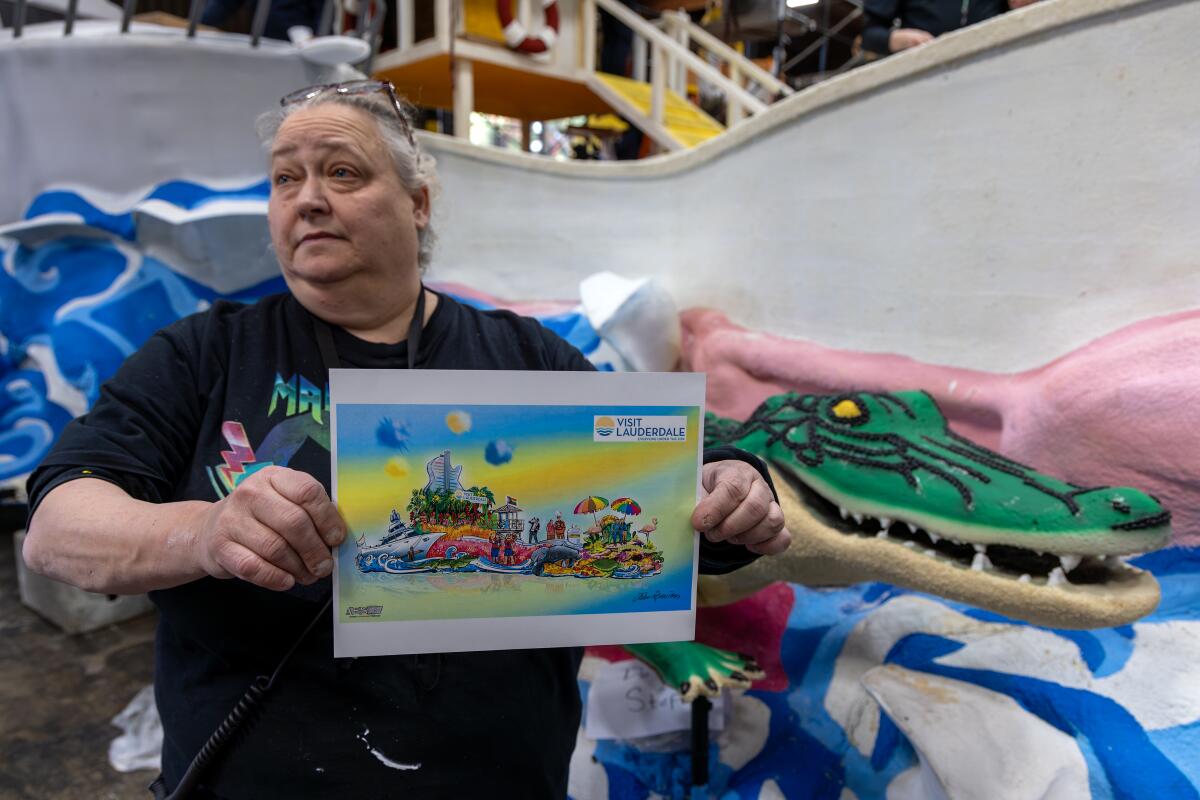
Tongson echoed that, commending Visit Lauderdale’s efforts to visibly counter the state government. However, she said, there is more to be done.
“I have no doubt that it’s meant to be a sign of resilience, that it’s meant to be a gesture of defiance,” Tongson said. “I just think that we are too often as a culture predisposed to stopping at the gesture, while gay rights and education related to LGBTQ issues continue to be ravaged and attacked.”
For Floridians, Visit Lauderdale’s float epitomizes the Broward County they know and love.
“It’s historic, timely and a very powerful statement about the diversity and inclusive work of the area,” said Gina Duncan of Equality Florida. “The Fort Lauderdale area is especially affirming, and it certainly is reflected in Visit Lauderdale’s participation in the Rose Parade.”
Duncan said “it’s a matter of time” before the conservative bills in the state are “overturned in appeals courts, because they are overtly discriminatory.”
“We feel that the resistance in Florida is strong,” Duncan added, “and it’s really based on the business and corporate community standing up against these bills. We see major metropolitan areas — like Fort Lauderdale, like the central Florida area — embrace diversity, equity and inclusion.”
As for Ritter, the longtime Broward County resident is optimistic about the float’s reception.
“I’m a big believer in trying,” she said. “Not everything that we do will be a huge, resounding success, but if you don’t try, you’ll never know. I think this is one of those things that’s going to be a huge resounding success and that the people who live [in Broward County] are going to be proud of for a really long time.”
More to Read
Sign up for Essential California
The most important California stories and recommendations in your inbox every morning.
You may occasionally receive promotional content from the Los Angeles Times.
